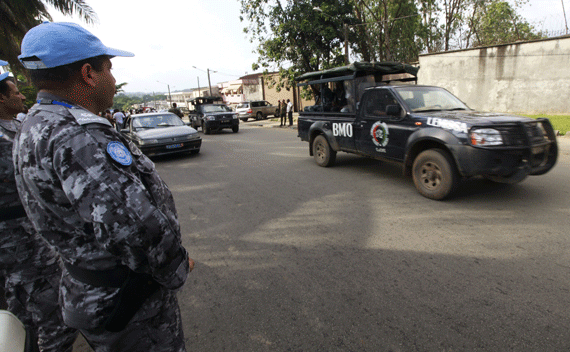Cote d’Ivoire – Not Looking Good
More on:
Incumbent president Laurent Gbagbo’s delay in releasing the results of Sunday’s presidential runoff election in Cote’ d’Ivoire, a minion’s contemptuous destruction on television of ballot results from certain northern parts of the country, and a government-imposed curfew in Abidjan enforced by armed toughs have the look of an incipient Gbagbo coup.
Foreign observers have reported that Sunday’s runoff elections went well. So, too, did the October 31 elections, where no candidate received the required fifty percent of the vote, and which required a runoff between the Christian and longtime ruler Gbagbo and his rival Alassane Ouattara, a Muslim associated with the north. Gbagbo’s actions over the past few days look like he fears Ouattara won a majority of the popular vote, and so he is trying to set aside the election results. If he does, the stage is set for Cote d’Ivoire to split de facto if not de jure into two states, a southern one centered around Abidjan--predominately Christian, the center of what remains of a modern economy and ruled by Gbagbo-- and a poorer northern one, primarily Muslim with close links to neighboring states to the north. If the country splits, Gbagbo does not appear to have sufficient military power to end the north’s secession. Any secession scenario is bad news as it likely precludes Cote’ d’Ivoire’s recovery as the entrepot of francophone West Africa.
(Photo: Thierry Gouegnon/courtesy Reuters)
More on:
 Online Store
Online Store
